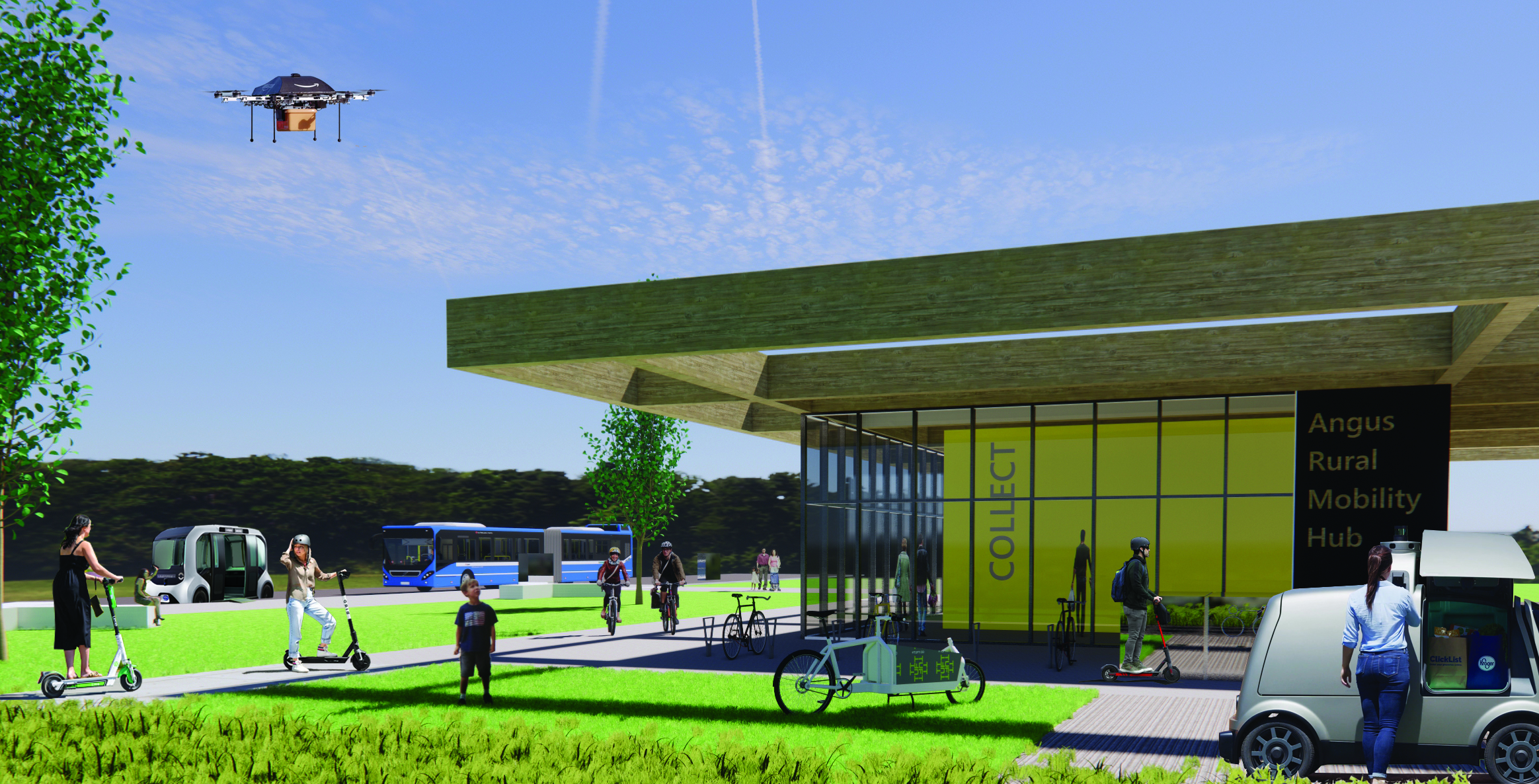Angus Rural Mobility Hub awarded funding to explore development of green hydrogen

The Angus Rural Mobility Hub has been awarded £10,000 of funding by the Energy Technology Partnership (ETP) to explore the development of green hydrogen for use in the heavy-duty vehicle sector.
The study, run by the University of Dundee, Angus Council and Dalhousie Estates, will focus on developing renewable hydrogen production to decarbonise heavy duty vehicles at the Angus Rural Mobility (ARM) Hub in Brechin.
Receiving £10,000 funding from the ETP Scotland Hydrogen Innovation Programme, alongside match funding of £5,000 from Dalhousie Estates, the ARM Hub will now progress its plans following the initial consultation phase earlier this year. The next stage will see the modelling of a micro grid - a self-sufficient energy system - and green hydrogen production, which will be tested and incorporated within the wider design process, as land use design, infrastructure and phasing of the Hub is explored.
Angus Council leader, Councillor Beth Whiteside, said: “Transport accounts for 30% of Scotland’s greenhouse gas emissions with road transportation making up 70% of these. The heavy-duty vehicle sector contributes to 40% of this emission, so it is clear to us that we need to find a scalable solution to meet Scotland’s climate change targets by 2030 and 2045. The creation of clean fuels is essential to achieving this ambition with green hydrogen playing a key role in reaching these targets.
“I’m delighted that the Rural Mobility Hub has received additional funding to explore the development of green hydrogen and renewable energy as it progresses onto the next phase of development.”
Simon Ramsay from Dalhousie Estates added: “As a rural enterprise actively involved in delivering renewable energy projects, Dalhousie Estates are delighted to continue working with the University of Dundee & Angus Council to explore the potential for the production of hydrogen from renewable generation for multiple applications, including the decarbonisation of transport. We are extremely grateful to ETP and the Hydrogen Innovation Programme for their ongoing support in unlocking the transformative opportunity for Brechin and the Tay region presented by the ARM Hub.”
The University of Dundee will bring its academic expertise with renewable energy and hydrogen production technology to help inform what renewable energy Angus RMH will be able to achieve by exploring a variety of scenarios.
Dr Jan Vorstius, senior lecturer in Mechanical and Industrial Engineering, commented: “We are grateful for this opportunity to support a triple intensity project, involving industry-linked research and the opportunity to directly enhance what we teach students on our Renewables programmes at the University of Dundee.”
Dr Christopher Dixon, lecturer in Mechanical and Industrial Engineering, added: “Hydrogen is a highly versatile energy vector, targeted at hard-to-decarbonise sectors where electrification is not suitable. Hydrogen and hydrogen-based liquid fuels are one part of the complicated pathway to a net-zero future.
“We will support the ARM Hub to develop a bespoke internal micro-grid, generating its own electricity to power the site and produce hydrogen. The project can then scale up when the local grid network can support the necessary balancing of intermittent renewable power generation.
“This will allow the ARM Hub to drive forward the national effort in hydrogen research that is needed to facilitate this critical area of technology to meet industry and government needs.”
The new Rural Mobility Hub, funded by the UK Government’s £26.5 million Angus Fund, as part of the Tay Cities Region Deal, will be located on the A90, halfway between Aberdeen and Dundee, and will integrate zero carbon energy systems with mobility services, enabling a ‘smart mobility infrastructure’.
The site includes 25 hectares and is set to provide the infrastructure, services and skills program that supports Angus Council’s long-term ambition to drive sustainable development, reduce greenhouse gas emissions, improve energy efficiency and create renewable solutions for transportation and energy across Angus and the wider Tay Cities region.





















